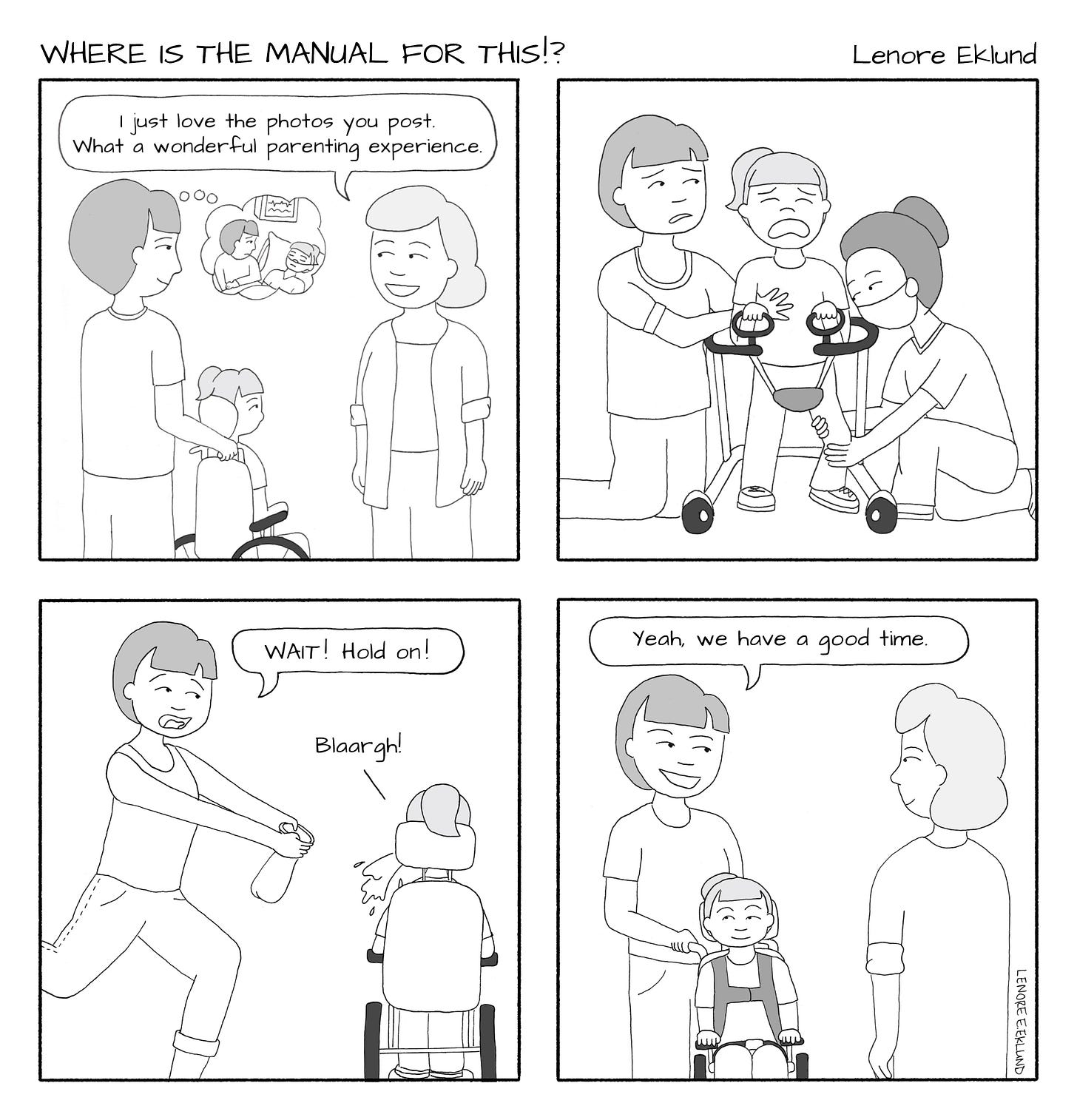Social Media is Not Reality... Perhaps Even More So for Medical Mamas
Plus: Nebraska expands Medicaid services; Wisconsin highlights need for mental health services for disabled children; and a 13-year-old with CP in Maine has been stuck in the emergency room for months
On the second Sunday of every month, we feature Where is the Manual for This?!, an editorial cartoon about the medical mom life from Lenore Eklund.
We all know that social media is the highlight reel but when you are a medical mama, there are big sections of your life you just can’t post about. Even if bodily fluids take up most of our lives, you won’t …




